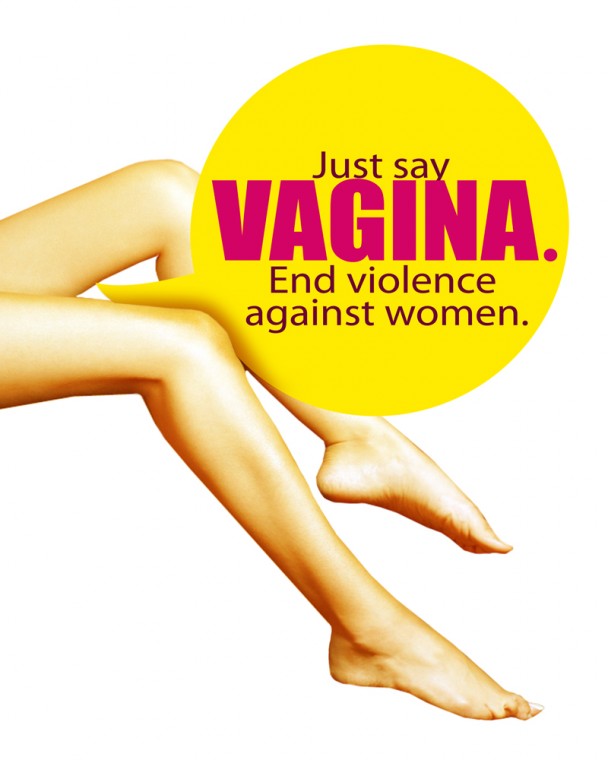Talk to the vagina
February 21, 2009
Some students have seen it, some have heard of it, but one thing is certain: “The Vagina Monologues” has gotten significant critical acclaim over the years.
Jessica Heskin, organizer of “The Vagina Monologues” on campus, said that the idea of this play originated as a documentary in which author and playwright Eve Ensler went around asking women questions about their vaginas.
“Women started telling personal stories about their vaginas? So she got about 200 different women’s answers together to present in a play now known as The Vagina Monologues,” Heskin said.
The sold-out play first premiered in 1998 in New York City, raising $250,000 towards local anti-violence groups. The play featured 20 actors including familiar names like Margaret Cho, Glenn Close, Whoopi Goldberg and Marisa Tomei, according to the official website, vday.org.
Some students on campus find the play funny and fascinating.
Mayra Ramirez, junior government major, was partial to the play when she saw it two years ago.
“I liked that every monologue had its own message. It was very interesting,” Ramirez said. “I had guy friends with me and they liked it as well.”
Elizabeth Rowell, graduate psychology student, has been participating in the play for four years and said that while most people have enjoyed the play, there have been some people on campus who have expressed their dislike for it. With its forward-thinking message and openness to discussing vaginas, it has caused some students on campus to poke fun at the play’s name.
“I have heard of people vandalizing our flyers before the play,” Rowell said. “‘The penis monologues’ have been hand written over The Vagina Monologues instead.”
But, for the most part, Rowell said the play has been a success on campus.
The play came to campus in 2002. Since then, all the money it raises goes towards women against violence programs that help women in violent situations, Heskin said.
With Valentines Day just past, the plays purpose becomes clearer.
“We proclaim Valentine’s day to celebrate women and end the violence,” according to the vday website.
“Vagina Monologue vday is the concept of the world against violen[ce] against women. And that is where the motto ‘Until the Violence Stops,'” Rowell said.
“Until the Violence Stops” is a docudrama that premiered at the Sundance Film Festival and features Ensler herself. It later went on to win the Gold Audience award, the award for outstanding short films.
Oddly enough, some male students on campus have seen it and have positive responses as well.
Roger Perez, junior kinesiology major, admits to being dragged to the play by other girls in his class.
“Even though I was the only guy in the audience, I liked it and I thought it was great they were open to talk about their bodies so freely,” he said. “I would recommend it to other women, but probably not to other men.”
With as much controversy as it has been subjected to overseas, the play has been widely accepted in the United States.
“The play was not positive in India, it caused too much controversy and was shut down,” Heskin said. “When I first saw it in San Francisco 20 years ago, people absolutely loved it and I did as well.”
Marcela Moreno, Graduate Office assistant, likes how real and free the women in the play talk about their bodies.
“I thought it was very powerful and feminist, but not in a raunchy way,” Moreno said. “The people in the audience were funny to watch because some were shy to hear about vaginas.”
She recalls one guy in the audience who could only be remembered for saying “Whoa!”
While some feel the play is funny and enticing, the performers and directors hold a more serious and educating point of view for its message.
“I love empowering women and educating them about their bodies and what it means to society as a whole,” Rowell said. “Some are funny, and some aren’t funny, and some are pretty dramatic.”
Along with being the author of “The Vagina Monologues,” Ensler is also an activist.
She has devoted her life to stopping violence, envisioning a planet in which women and girls will be truly free to thrive, according to her website.
The Tony Award-winning play has been translated into more than 45 languages and performed in over 120 countries.
If you want to catch the play, it will be running Thursday through Saturday; the first two showings will be in the University Union’s Redwood Room and the last show in the Hinde Auditorium.
Amber Wertman can be reached at [email protected].





























































































































